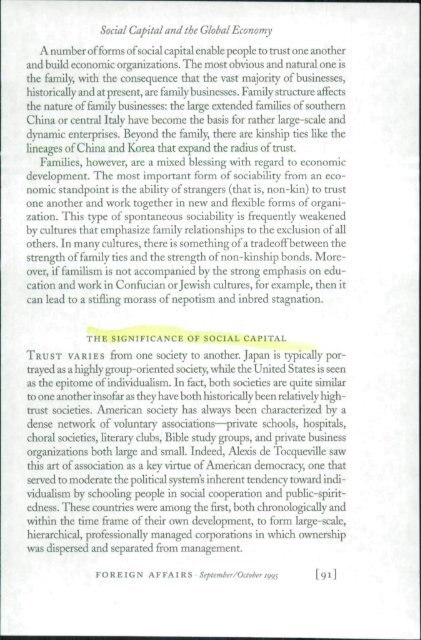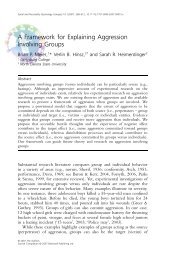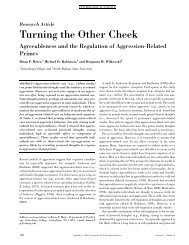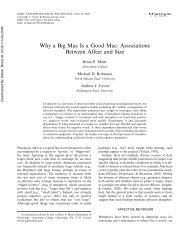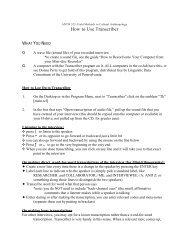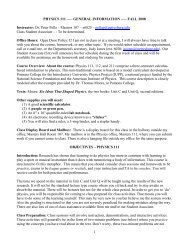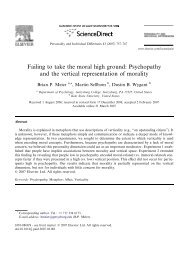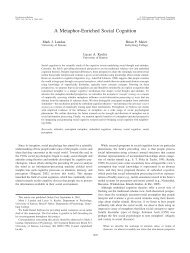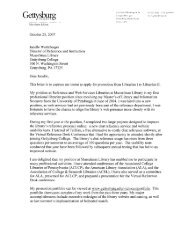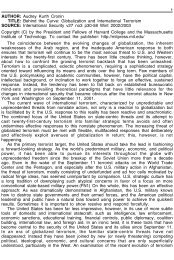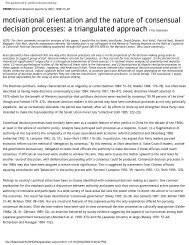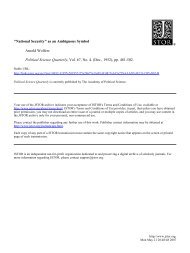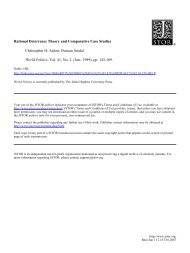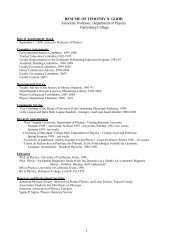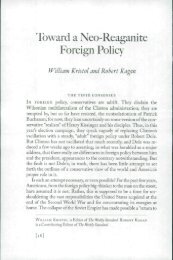Francis Fukuyama. 1995 "Social Capital and the Global Economy."
Francis Fukuyama. 1995 "Social Capital and the Global Economy."
Francis Fukuyama. 1995 "Social Capital and the Global Economy."
You also want an ePaper? Increase the reach of your titles
YUMPU automatically turns print PDFs into web optimized ePapers that Google loves.
<strong>Social</strong> <strong>Capital</strong> <strong>and</strong> <strong>the</strong> <strong>Global</strong> <strong>Economy</strong><br />
A number of forms of social capital enable people to trust one ano<strong>the</strong>r<br />
<strong>and</strong> build economic organizations. Tbe most obvious <strong>and</strong> natural one is<br />
tbe family, witb tbe consequence tbat tbe vast majority of businesses,<br />
bistorically <strong>and</strong> at present, are family businesses. Family structure affects<br />
tbe nature of family businesses: tbe large extended families of soutbern<br />
Cbina or central Italy bave become tbe basis for ratber large-scale <strong>and</strong><br />
dynamic enterprises. Beyond tbe family, tbere are kinsbip ties like tbe<br />
lineages of Cbina <strong>and</strong> Korea tbat exp<strong>and</strong> tbe radius of trust.<br />
Families, bowever, are a mixed blessing with regard to economic<br />
development. The most important form of sociability from an economic<br />
st<strong>and</strong>point is <strong>the</strong> ability of strangers (tbat is, non-kin) to trust<br />
one anotber <strong>and</strong> work togetber in new <strong>and</strong> flexible forms of organization.<br />
This type of spontaneous sociability is frequently weakened<br />
by cultures tbat emphasize family relationships to <strong>the</strong> exclusion of all<br />
o<strong>the</strong>rs. In many cultures, tbere is sometbing of a tradeoff between <strong>the</strong><br />
strength of family ties <strong>and</strong> <strong>the</strong> strength of non-kinship bonds. Moreover,<br />
if familism is not accompanied by tbe strong emphasis on education<br />
<strong>and</strong> work in Confucian or Jewish cultures, for example, <strong>the</strong>n it<br />
can lead to a stifling morass of nepotism <strong>and</strong> inbred stagnation.<br />
THE SIGNIFICANCE OF SOCIAL CAPITAL<br />
TRUST VARIES from one society to ano<strong>the</strong>r. Japan is typically portrayed<br />
as a bigbly group-oriented society, wbile tbe United States is seen<br />
as tbe epitome of individualism. In fact, both societies are quite similar<br />
to one anotber insofar as tbey bave botb bistorically been relatively bigbtrust<br />
societies. American society bas always been cbaracterized by a<br />
dense network of voluntary associations—private scbools, bospitals,<br />
cboral societies, literary clubs, Bible study groups, <strong>and</strong> private business<br />
organizations botb large <strong>and</strong> small. Indeed, Alexis de TocqueviUe saw<br />
tbis art of association as a key virtue ofAmerican democracy, one tbat<br />
served to moderate tbe political systems inberent tendency toward individualism<br />
by schooling people in social cooperation <strong>and</strong> public-spiritedness.<br />
These countries were among <strong>the</strong> first, botb cbronologically <strong>and</strong><br />
witbin tbe time frame of tbeir own development, to form large-scale,<br />
bierarcbical, professionally managed corporations in wbich ownership<br />
was dispersed <strong>and</strong> separated from management.<br />
FOREIGN AFFAIRS • September/October <strong>1995</strong> [91]


